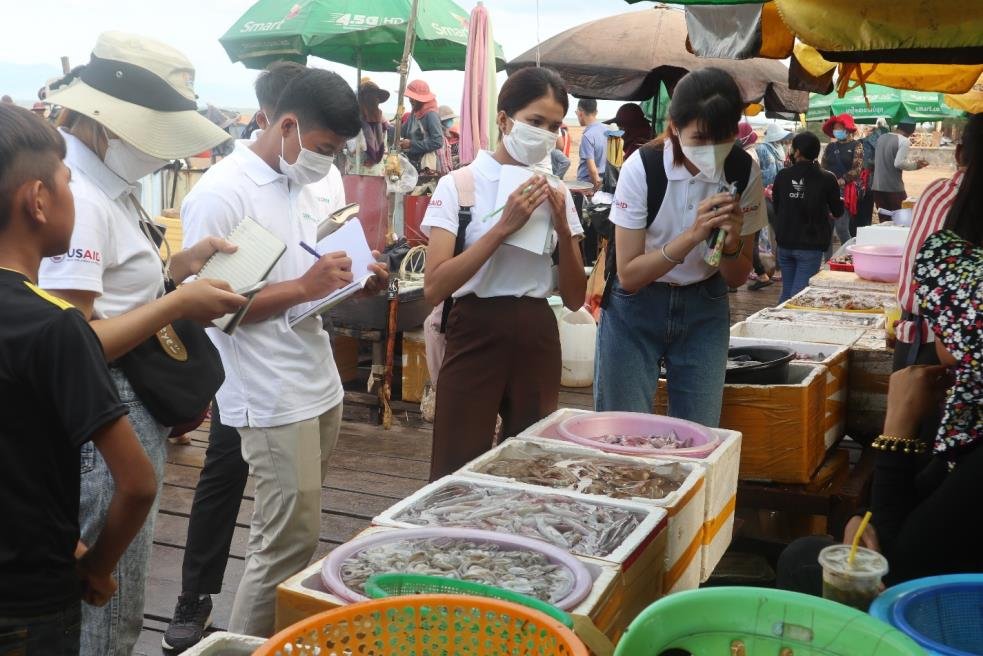Hands-On One Health
From learning first-hand how to engage with communities to address health issues impacting their families and livelihoods, to grasping for the first time the interconnection and interdependence between human, animal, and wildlife populations that share our environments, experiential learning is critical to implementing One Health. A mainstay of effectively implementing collaborative multi-disciplinary One Health approaches is providing hands-on in situ training opportunities for both pre-service and in-service health professionals. The SEAOHUN and AFROHUN regional networks and their respective OHUNs and country chapters have marked considerable success utilizing established One Health field and demonstration sites as real-world learning laboratories to understand the complex dynamics, interconnections and interdependencies at the human, animal, environmental interface. The university networks also rely on other real-world teaching and training opportunities to support disease outbreak response, integrated disease surveillance, just-in-time risk communications and community outreach, at local, national and regional levels.
Following more than two years of lockdowns, social distancing and limited group interactions inherent with the COVID-19 pandemic, opportunities opened up last year for students, teaching and research faculty and in-service health professionals to reinvigorate in-person One Health experiential learning and training opportunities.
Below are some examples of students and in-service professionals getting their hands-on One Health in 2022 in Cambodia, Rwanda, and Vietnam:
A One Health Field Trip in Cambodia
In March this year CAMBOHUN organized a highly successful One Health field trip taking students and faculty advisors to Kep Province to provide learning opportunities at the human, animal, environmental interface and to stimulate the establishment of One Health student clubs. The field trip was a first time experience for many participants to practice identifying One Health issues and proposing solutions, exchange knowledge and skills in One Health across their university faculties, and to improve communication skills critical to working collaboratively across disciplines. Kep is a coastal province in Southern Cambodia known as a tourist destination for nearby islands and as a hub of seafood production for the country. During the field trip participants focused on the food safety aspects of One Health and visited the seafood market to practice their communications and participatory epidemiology skills in interviewing vendors about their food safety and hygiene practices.
Rwanda’s Rwinkwavu One Health Demonstration Site
AFROHUN Rwanda organized an experiential learning opportunity at their Rwinkwavu One Health Demonstration site, located adjacent to Akagera National Park, a renowned location for studying the interface of wildlife, domestic animals, humans and their shared environment. This year’s experiential learning activity focused on waterborne diseases and human-animal interactions through water sources. Student participants undertook community engagement and risk communications efforts to raise awareness on the risks and dangers of waterborne diseases, and ways to provide community members viable alternatives to mitigate risks from utilizing limited water sources often shared by humans, domestic animals and wildlife species. Participants also had the unique opportunity to work with the district veterinary officer assisting with cattle immunizations for Rift Valley Fever virus, which causes a viral hemorrhagic fever in animals and humans and is thus a zoonotic disease of priority concern. With sporadic outbreaks of Rift Valley Fever in the area that can have devastating impacts on livestock and human populations, student participants gained an appreciation for the critical need for developing their skills community outreach and risk communications to raise awareness and help prevent disease spread before an outbreak occurs.
VOHUN’s Unique Public-Private Partnership One Health Site
This year VOHUN established a new One Health Site through a unique public-private partnership with the Thien Thuan Tuong company, a Vietnam-based science and technology enterprise in livestock and crop production. The company has 1,200 breeding sows, producing 6,000 gilts, 5,000 commercial breeding pigs, and 20,000 fattening pigs on an annual basis. VOHUN member, Thai Nguyen University of Agriculture and Forestry (Thai Nguyen UAF), organized a field-based training course at this new One Health Site in Quang Ninh province, which engaged 35 students from two universities (Thai Nguyen UAF and Hai Phong University of Medicine and Pharmacy). This year’s training focused on biosafety and biosecurity in pig production and participants gained hands-on experience performing rapid tests for the African Swine Fever virus, a significant animal disease currently threatening swine production systems in the region. This kind of public-private partnership is a critical component to demonstrating the value-addition of collaborative One Health approaches in addressing complex challenges in agricultural production.



